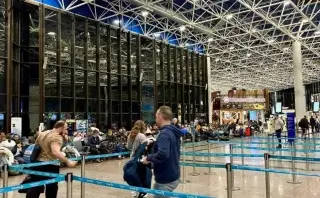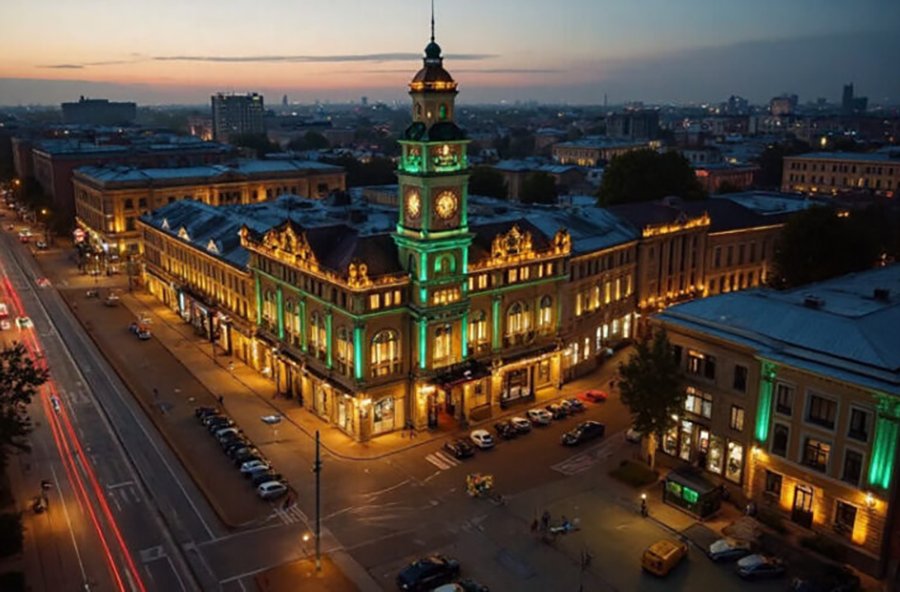read also
 More Than 100 Flights Delayed and Canceled in Krasnodar Region
More Than 100 Flights Delayed and Canceled in Krasnodar Region
 Poland’s Housing Market Loses Investment Appeal
Poland’s Housing Market Loses Investment Appeal
 Singapore housing market set for steady performance in 2026
Singapore housing market set for steady performance in 2026
 Sri Lanka Tourism Accelerates Into 2026
Sri Lanka Tourism Accelerates Into 2026
 Spring Break shifts toward private luxury villas: trend changes
Spring Break shifts toward private luxury villas: trend changes
 Albanian rents rise as investment returns fall
Albanian rents rise as investment returns fall
Travel Risks in Belarus, Denmark, Serbia and Germany: Statement by the Italian Foreign Ministry

Photo: Travel and Tour World
Italy has issued a clarification regarding increased travel risks in several countries. The document mentions Belarus, Denmark, Serbia, and Germany, where border controls have tightened and visa rules have changed. Some of these countries have also reported higher crime rates. There is no travel ban, and these destinations are not officially considered unsafe, notes Travel and Tour World.
Belarus: Visa-Free Entry and Closed Border
Particular attention is given to Belarus, where difficulties remain along the border with Lithuania. The Šalčininkai–Benyakoni crossing remains closed until November 30, 2025, while the Medininkai–Kamenny Log route operates under restrictions. Citizens of the European Union, including Italians, can still cross between Lithuania and Belarus under specific conditions, though transportation disruptions are possible. Such trips are described as unpredictable. The Italian Foreign Ministry advises travelers to use open crossings via Latvia (Paternieki) and Poland (Brest–Terespol).
Since January 11, 2025, a visa recognition agreement between Belarus and Russia has been in effect, allowing foreign visitors holding a visa from one country to move freely to the other. However, border crossings are permitted only through six official checkpoints. Travel to border areas with Ukraine and the Chernobyl Exclusion Zone is deemed unsafe. Regions such as Bragin and Khoiniki, as well as parts of the Gomel, Mogilev, and Luninets areas, remain closed due to radioactive contamination that persists decades after the disaster.
Belarus maintains a visa-free regime for European countries until the end of 2025. Italian citizens can stay in the republic for up to 30 days per visit and no more than 90 days per year. Entry requires a valid passport, medical insurance worth at least 10,000 euros, and proof of sufficient funds. Insurance can be purchased at the airport at a cost of about 50 euro cents per day. Stays longer than ten consecutive days require registration with the local immigration office, which can be done online or by the traveler’s accommodation provider. Failure to comply may result in fines, deportation, or an entry ban ranging from one to ten years.
Serbia: Protests and Thefts
Mass demonstrations are expected in Serbia to mark the anniversary of the Novi Sad railway tragedy. Italians are advised to avoid large gatherings and monitor updates from local media. Extra caution is recommended on the Ibarska Magistrala highway, where thefts and car attacks have become more frequent. The advisory also lists regions with occasional ethnic tensions, including Presevo, Bujanovac, Medvedja, and Sandzak. Travelers are urged to limit movement in these regions to essential travel only, preferably along major highways.
Italians are advised to drive carefully, avoid photographing military or police facilities, and keep contact details of the Italian Embassy handy for emergencies. Authorities warn that using forged or damaged documents may result in charges of illegal border crossing. Italian citizens entering from Kosovo should remember that Serbia does not recognize Kosovo’s independence, and passports with Kosovo stamps may cause problems at border control.
Entry into Serbia requires only a passport or ID card; however, all foreign nationals must register with the police within 24 hours of arrival.
Germany: Terror Threats and Pickpocketing
Germany was included in the advisory following several incidents in Berlin and Frankfurt. Security measures are expected to tighten ahead of major events and the Christmas season. Italian authorities urge travelers to remain vigilant, particularly in crowded places and transport hubs. A specific notice was issued for Fiorentina football fans traveling to Mainz for the Conference League match on November 6, 2025. They are strongly advised to follow police and security instructions.
Although Germany remains generally safe for tourists, the number of thefts and pickpocketing incidents has risen in major cities over the past year. The highest risks are recorded at train stations and tourist areas in Berlin, Hamburg, and Munich. Italians are advised not to carry original documents, to store them in hotel safes, and to keep only copies or digital versions.
For travel to Germany, a valid passport or ID card is required. The country is part of the EU and the Schengen Area, which ensures free movement among member states, but document checks have become more frequent under heightened security.
Denmark: Street Crime
Denmark has recently seen a resurgence of street crime and gang-related incidents, particularly in Copenhagen, Odense, and Aarhus. Tourists are urged to be cautious at night, especially in neighborhoods such as Norrebro, Husum, Bispeparken, and Tingbjerg, where assaults and conflicts have been reported. Visitors arriving in Copenhagen should remain alert in tourist-heavy areas, as theft and pickpocketing have increased, often involving organized groups of minors.
Cruise passengers stopping in the capital are advised to limit valuables and stay vigilant during excursions to the Christiania district. This bohemian neighborhood is known for its alternative culture but remains unsafe despite the closure of the illegal “Pusher Street” market and recent police efforts to restore order. In the event of theft or loss of documents, travelers should immediately contact the Italian Embassy, which can issue a temporary travel document even on weekends in verified emergencies.
Since 2016, border checks have intensified due to migration and counterterrorism measures, especially at the German-Danish crossing and on the Oresund Bridge connecting Denmark and Sweden. Police conduct random inspections at ferry terminals, train stations, and airports. Italian tourists are urged to comply with all security checks and remain vigilant in public places.
All travelers in Denmark must carry valid identification or a passport. As an EU and Schengen member, Denmark allows Italians visa-free entry for up to three months.


